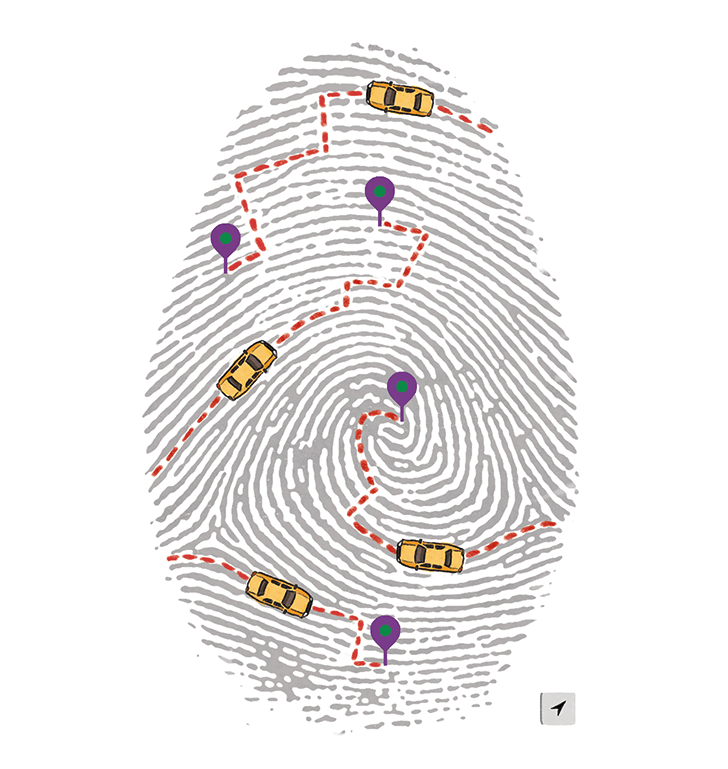The compromise that brought transportation network companies Uber and Lyft back to San Antonio last year was framed as a win-win-win-win.
Both TNCs fled the city after City Council passed regulations that mandated fingerprint background checks. The companies claimed that the new rules were overly onerous, since they already conducted their own checks. So they left.
The idea that led to their return, spearheaded by Councilman Roberto Treviño, was to make the checks voluntary. It meant something for everyone: TNCs didn't have to force their drivers to submit to checks they thought were frivolous, city officials could claim they'd found an innovative solution to shore up public safety, drivers could choose whether to undergo the free additional check and riders could pick drivers who'd had an extra level of screening.
The plan, which passed by a 6-5 margin, technically did all those things. But so far, few TNC drivers have undergone the additional background checks.
Between October 2015, when the free voluntary fingerprint background checks started, and January 2016, 128 drivers started the additional check, with only 73 finishing.
It's unknown what percentage of TNC drivers this represents, since neither Uber nor Lyft released the number of drivers working in San Antonio. Uber spokeswoman Jaime Moore said "hundreds" of drivers in San Antonio signed up with the company over the last few weeks. And, Uber claimed it recruited 2,000 drivers in January, when it announced a campaign to add 10,000 more drivers in San Antonio in 2016. Representatives from Lyft did not respond to multiple queries for this story.
"We're talking about single-digit percentages taking advantage of it," said Councilman Ray Lopez, who favors mandatory fingerprint background checks for all TNC drivers. "I don't know what action we will take or can take, but it's baffling."
Checked Out
TNCs already conduct criminal background checks of their own through a third party, searching for certain offenses and the driving history for all drivers. Those who undergo the voluntary background checks also have their picture and fingerprints recorded. They are then run through an FBI database. If the drivers pass the check, they are issued an ID card and a special designation on the TNC app so that riders know they've passed the extra check.
Moore said that not only are the checks Uber performs sufficient, she also questioned the efficacy of the FBI checks.
"We believe that the background check process that TNCs use stacks up well against the alternatives, without unnecessarily discriminating against minorities as fingerprint-based checks do," Moore said.
Groups such as the National Employment Law Project claim that the FBI checks often present an incomplete or misleading picture of a candidate's legal record, disproportionately affecting, minorities who are arrested at higher rates than other whites.
Waste of Time?
But some TNC drivers say that even though the fingerprint check isn't time-consuming or complicated, there's not enough incentive to go do it.
Matthew Nesbitt, 30, drove for both Uber and GetMe, a relatively new TNC that provides both rides for passengers and a delivery service. He went through the fingerprint background check process thinking it would give him an "upper hand."
"To me, it was so little work for what could be a larger reward," Nesbitt said.
But even at such little cost, it never paid off because he said the checks didn't win him more rides. Nesbitt claimed many of his fellow drivers now feel they won't reap any benefit from volunteering for the check.
"What's that point of me wasting my time in doing this if it equals nothing? In the end ... it does nothing to increase your bottom line as an independent contractor. That's what the astounding majority of drivers [think]," Nesbitt said.
But even if a rider was dead-set on hiring a driver who had cleared the voluntary check, it's tough to do so. No TNC allows riders to only hail drivers who've cleared the fingerprint check. So to get one, riders must keep hailing and cancelling rides until they land on a driver who's undergone the check – a time-consuming process.
Although Uber would not release any ridership data, Moore stated that "we have not seen consumers prefer a fingerprinted driver in San Antonio."
But Nesbitt also said he "did not feel that Uber cared one bit" that he did the fingerprint check, a stark contrast from GetMe, which encouraged him to do it.
Although few GetMe drivers in San Antonio have done it, GetMe Chief Experience Officer Jonathan Laramy eventually wants all of the company's drivers to go through the fingerprint check.
"We believe in fingerprinting," Laramy said. "It's easy, it's efficient, it's free. ... From a city perspective, I'd feel better about the fact that we did everything we can when the bad apple happens."
City Council will soon re-evaluate its operating agreements with both Uber and Lyft, since the pilot programs under which they now operate will end in July and September, respectively.
To inform those decisions, Treviño and others will hold a series of town halls over the next few months to get citizen feedback and advertise the voluntary background checks. Other council members will use the new agreements to try to assert stricter rules for TNC drivers.
"The line in the sand for me is the checks. ... It's simple to make them mandatory," Lopez said. "I will be asking for that to happen. I couldn't get majority last time, I don't know that I'll get majority this time, but I think it's a reasonable step for us to take."


